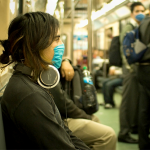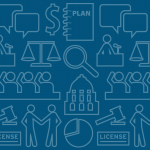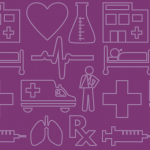Public Health Threats & the US Constitution: What Responders Need to Know About Equity, Law, and Public Health Authority
A Public Health Law Academy training
Public health law plays a central role in keeping Americans safe and healthy in times of crisis, from communicable disease outbreaks (like a pandemic) to natural disasters (like Hurricane Katrina). However, the US Constitution requires that public health responses take into account the rights of individuals affected by emergencies.
During public health crises, state and local officials need to understand how to balance public health authority against individual liberty. Measures such as social distancing, isolation and quarantine, and mandatory examination and treatment all have constitutional implications — and even well-intentioned public health measures have the potential to maintain inequities or, in some cases, actually widen them.
This training provides an overview of laws that affect how government can respond to health crises in ways that advance rather than hinder health equity. It introduces the constitutional principles and doctrines that protect individual civil liberties from government overreach. Take our quiz to test your knowledge and preview the training content by watching this video short.
This training also includes examples from real-life scenarios to answer questions like the following:
- How can public health departments protect the common good while balancing the rights of affected individuals?
- During a communicable disease outbreak, if parents refuse to have their children vaccinated or treated for religious reasons, can public health departments force parents to do so?
- How can public health departments ensure that application and enforcement of public health policies do not disproportionately harm marginalized communities — including Black people, Indigenous people, and other people of color?
- What foundational principles — outlined in the Constitution — do public health departments need to know when preparing for and responding to public health emergencies?
After completing this training, you will be able to
- discuss how emergency preparedness relates to health equity;
- describe the role of law in emergency preparedness and response;
- explain the powers and limits that the US Constitution assigns to public health authorities in regard to disease control; and
- understand the need to balance collective actions for the common good against individual freedoms.
If you are a TRAIN user, please register through TRAIN. To learn more about earning the Public Health Law Academy Certificate of completion, see the complete training plan. This training is current as of August 2021.
After viewing the training, please consider sharing your feedback.


